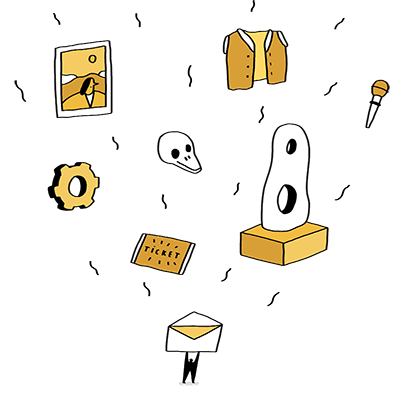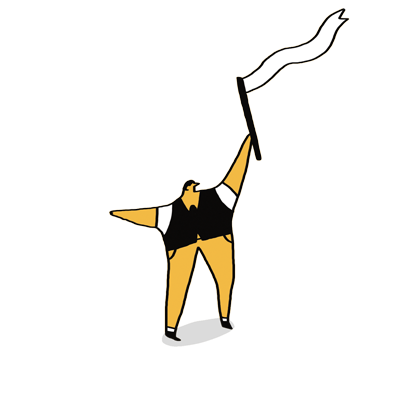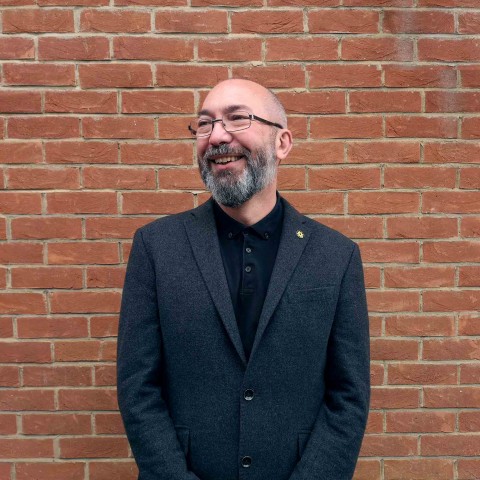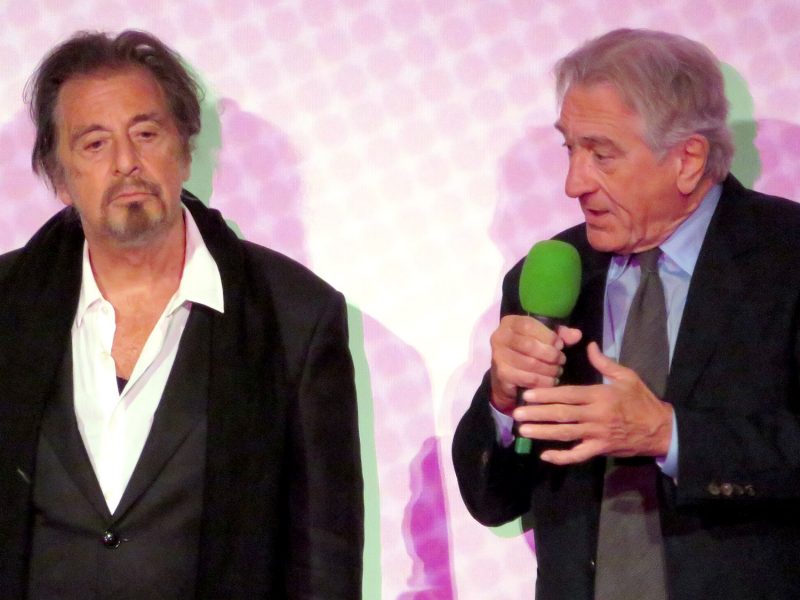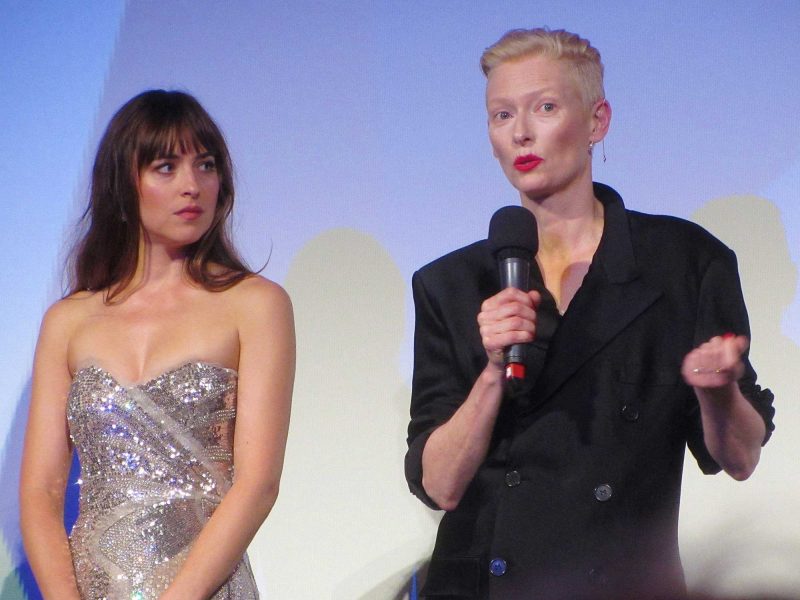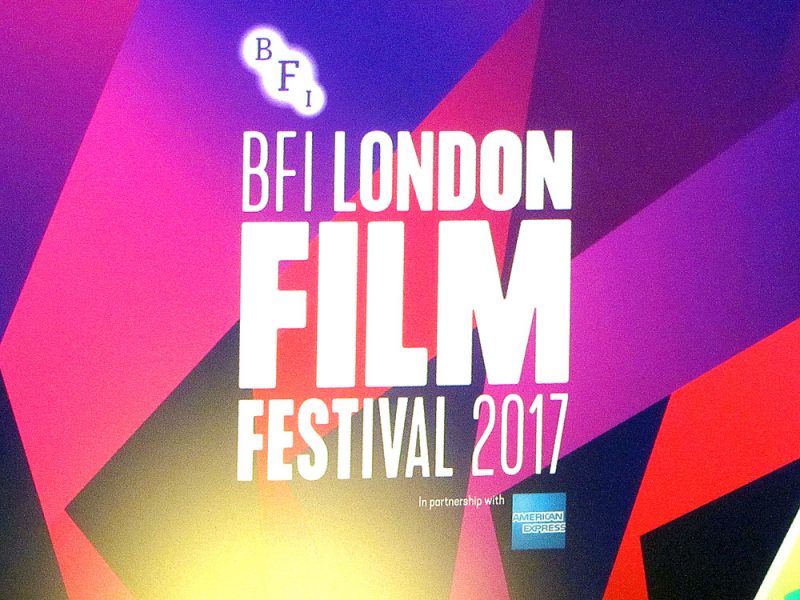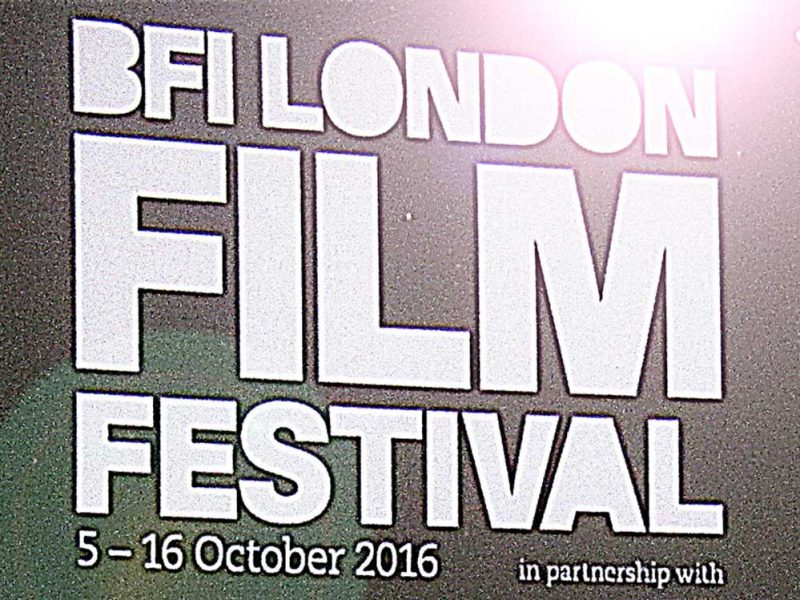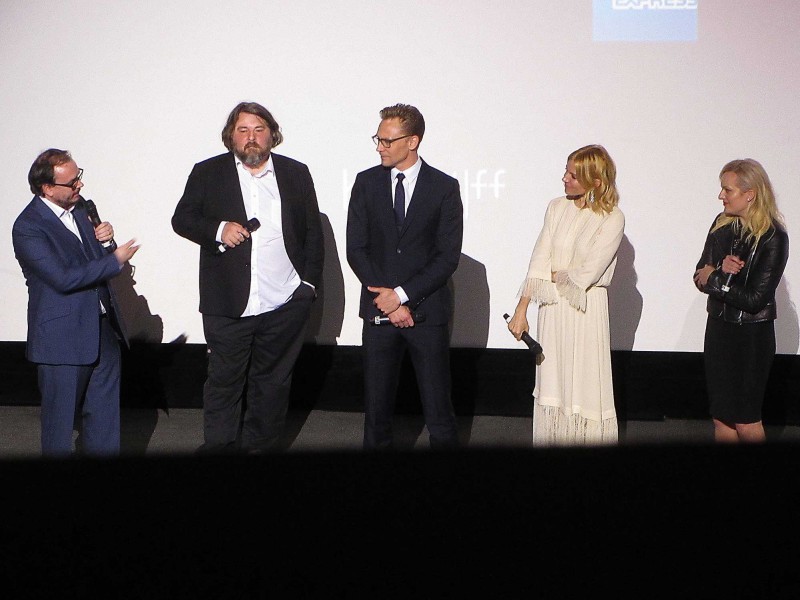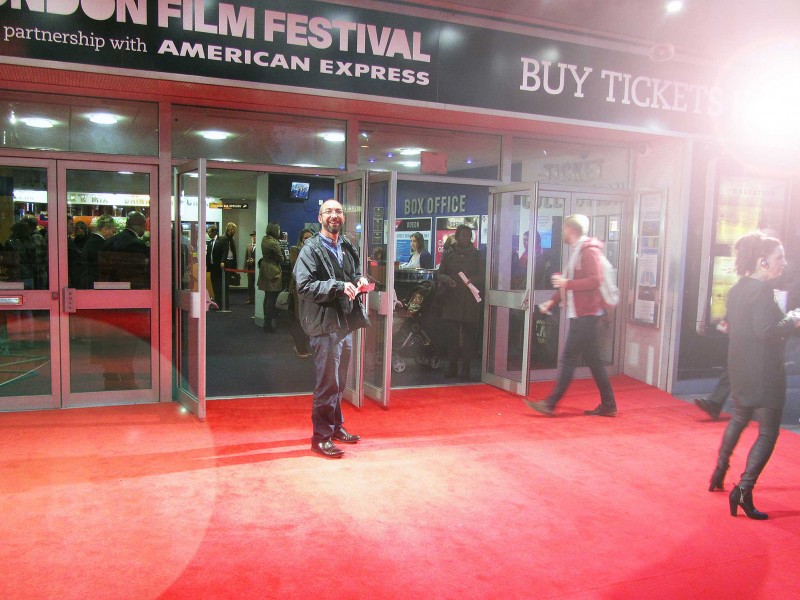The 66th BFI London Film Festival saw it back to full, in-person, red-carpet glory (after two more muted years). Here’s Michael’s round-up of the 14 festival films he saw in 12 days.
London Film Festival 2022
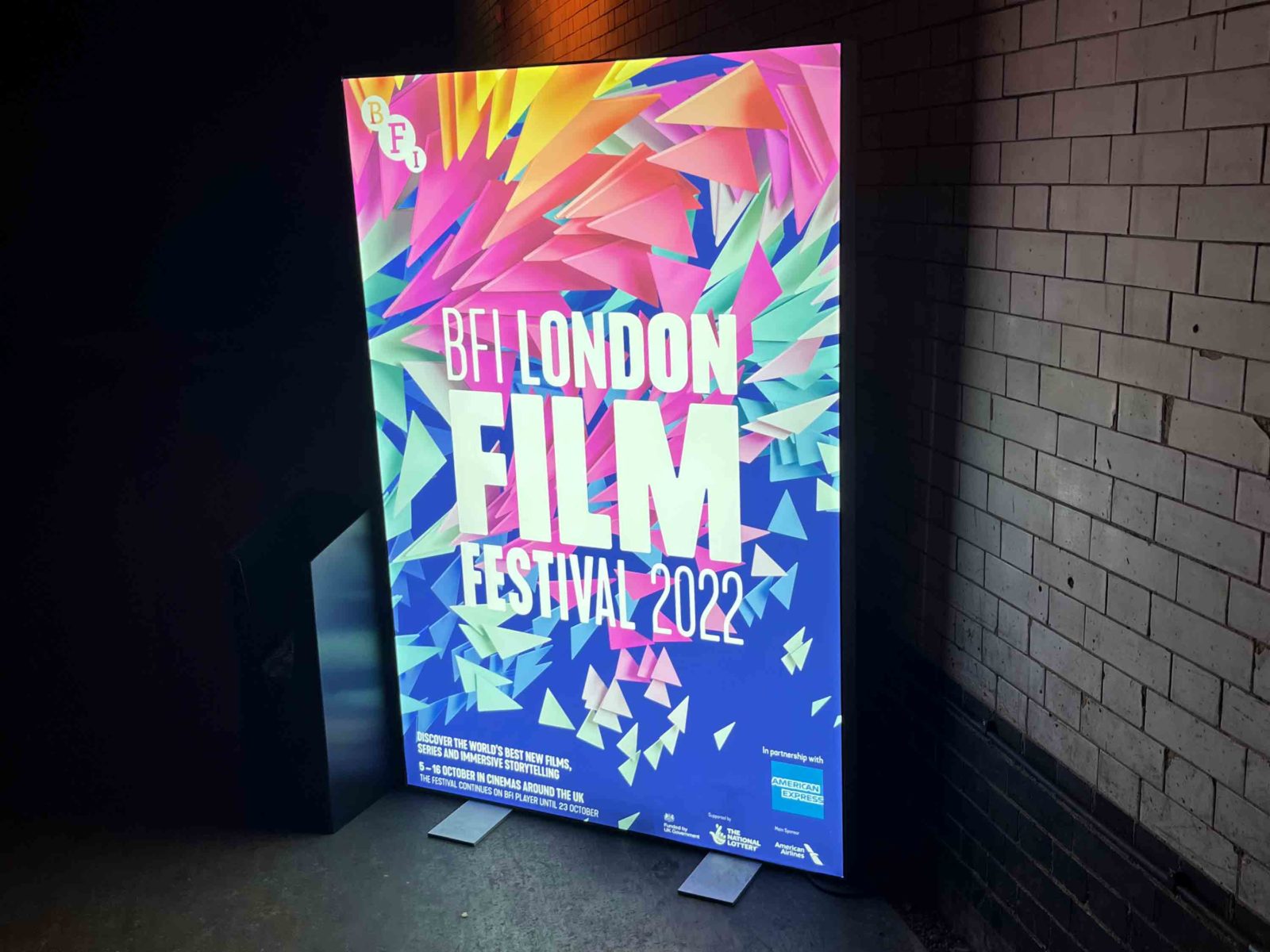
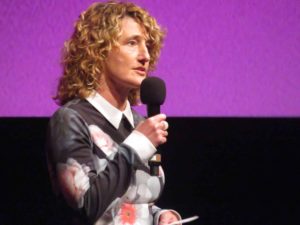
Festival Director, Tricia Tuttle
As I do each year I’ve written a run-down about the films I saw at the London Film Festival. I do that mostly so I can remember them; I’m always surprised by how quickly I forget otherwise.
Before I begin writing about the films, I thought it would be worth a quick nod to the team behind the festival. The BFI programming team, event organisers, box office staff, and many volunteers (plus everyone else) have been brilliant throughout the festival.
I’ll be especially sorry not to see Director, Tricia Tuttle leading the festival next year. She has announced that this will be her last. I can remember her becoming Director with a speech that referenced her surname and the character from Brazil.
She has led the festival through the tough times of Covid and expanded its reach and reputation in the process, all while wearing her signature silver boots. I’ll be sorry to see her go.
Day 1

Linoleum’s Producer, Chad Simpson III
Linoleum
I’d normally try to be at the opening gala for the London Film Festival. But this year’s gala was Matilda, and I’m really not a fan. So instead I chose Linoleum, I chose well.
Linoleum is a wonderful film.
The story centres around the life of a failing TV science presenter, Cameron Edwin (played by Jim Gaffigan), in a marriage that is falling apart in timeless suburban American, So far so normal until a bright red sports car crashes from the sky and in the driver’s seat is a man who looks ‘like a younger, better looking version of’ Cameron.
I won’t spoil the plot by writing much more about it. I want you to experience it for yourself. But it’s not a spoiler to say that Cameron attempts to build a spaceship in his garage.
Writer/Director Colin West does a magical job of finding the perfect balance between self pitying schmaltz and heart warming humanity.
Plus, Tony Shalhoub makes an appearance as a doctor who appears to talk in existential riddles: “I’m suggesting that perhaps the universe in our heads is more real than reality itself”. What’s not to like?
Sadly, Colin West couldn’t make this UK premiere (at the BFI) because he had Covid. But the film was represented by producer Chad Simpson III, who could have been more appropriate to represent this all American story.
Day 2
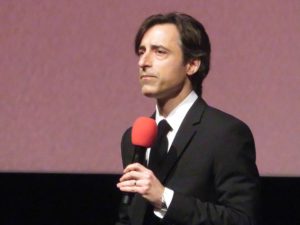
Director, Noah Baumbach
White Noise
I saw two films on day two. First up was the hotly-tipped White Noise. Adapted from the book (published 40 years ago) by Don DeLillo, the film is a black comedy, a state of the nation examination of the psyche of America. And it has hugely prescient connections to that society today.
Noah Baumbach’s direction is hugely atmospheric and consistently unsettling in its tone. His own wife, the accomplished Director and actor, Greta Gerwig plays the strung out, pill-popping (third) house-wife to Adam Driver’s university lecturer character; he is the world’s leading Hitler-focused academic.
Their family of half brothers and sister features Raffey Cassidy (Denise) and Sam Nivola (Heinrich) who are keenly observant and well informed while their parents drift from situation to situation.
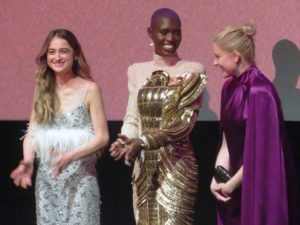
Raffey Cassidy, Jodie Turner-Smith and Greta Gerwig
At the heart of the story is an ‘Airborne Toxic Event’ spreading a cloud of what might be (if you believe the emerging fake news) highly poisonous to anyone exposed.
It’s a sprawling film with many story-strands and darkly comedic characters. It’s just the sort of film that is beloved of film festivals, a brilliant adaptation of a clever novel. But that is, perhaps, my criticism. It felt like a book, on screen; very clever but wearing that cleverness a little too heavily for me.
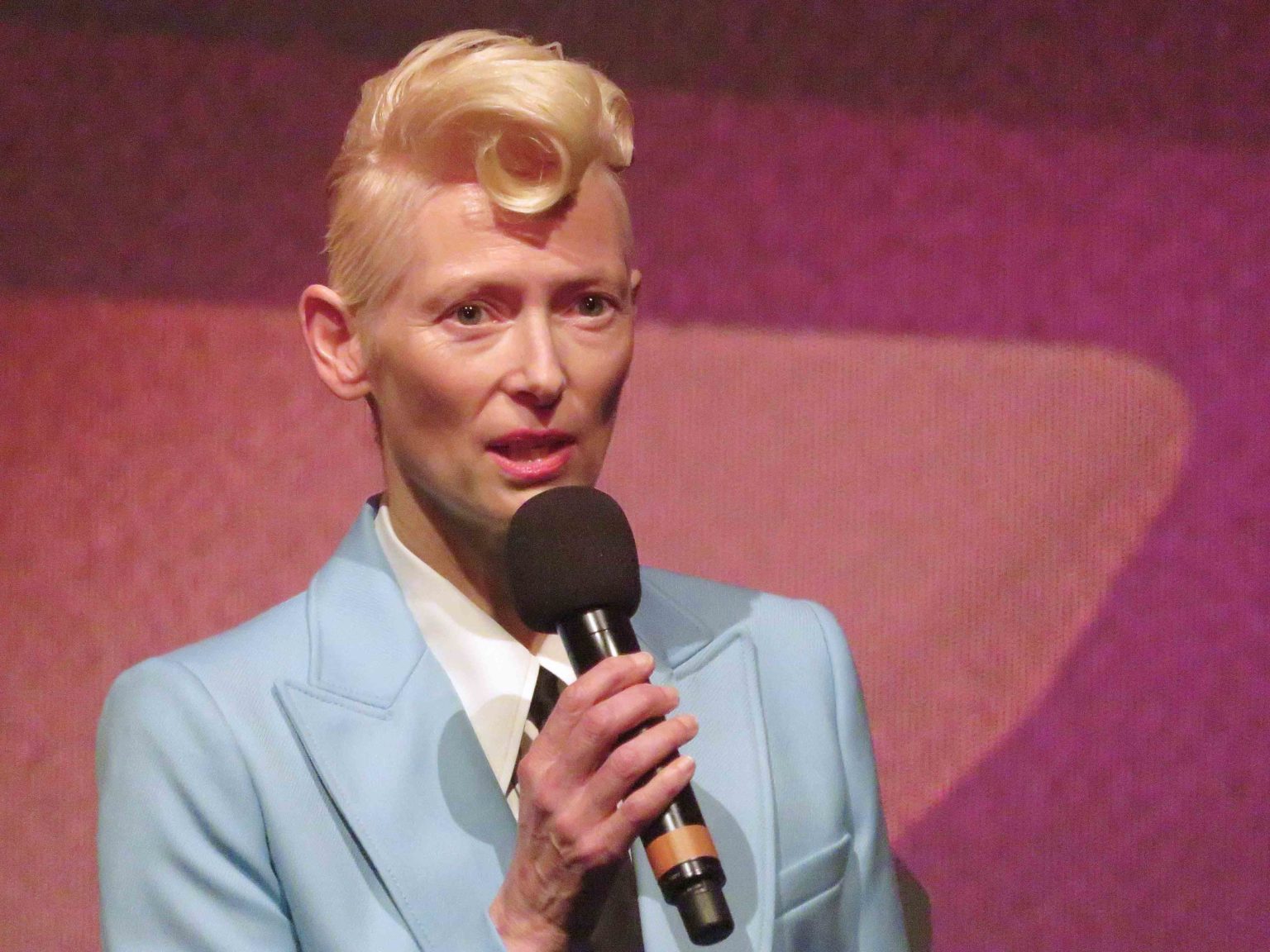 Tilda Swinton
Tilda Swinton
The Eternal Daughter
The Eternal Daughter sees the reunited pairing of Tilda Swinton with Director Joanna Hogg. I now know, from the pre-film discussion, that they are childhood friends; Swinton even appeared in Hogg’s university film short and a handful of cinematic releases since.
Hogg spoke to us about making this film in lockdown and about the personal nature of the film, stemming from a troubled relationship with her own mother.
The low budget, Covid restricted filming add to the sense of gothic horror; we only really see four characters and two of those are played by Swinton.
The film opens with a writer/filmmaker arriving with her ageing mother to spend a few nights in an old country hotel somewhere in England, the single location for the whole film. It’s dark and cold and the building is all but empty.
We learn, from moments of tender exchange, that her mother knows the old house from her childhood, But it’s clear that she does not want to talk about the past, however much her daughter tries to tease out the truth, or peak into the carrier bag of secret papers that her mother carries with her.
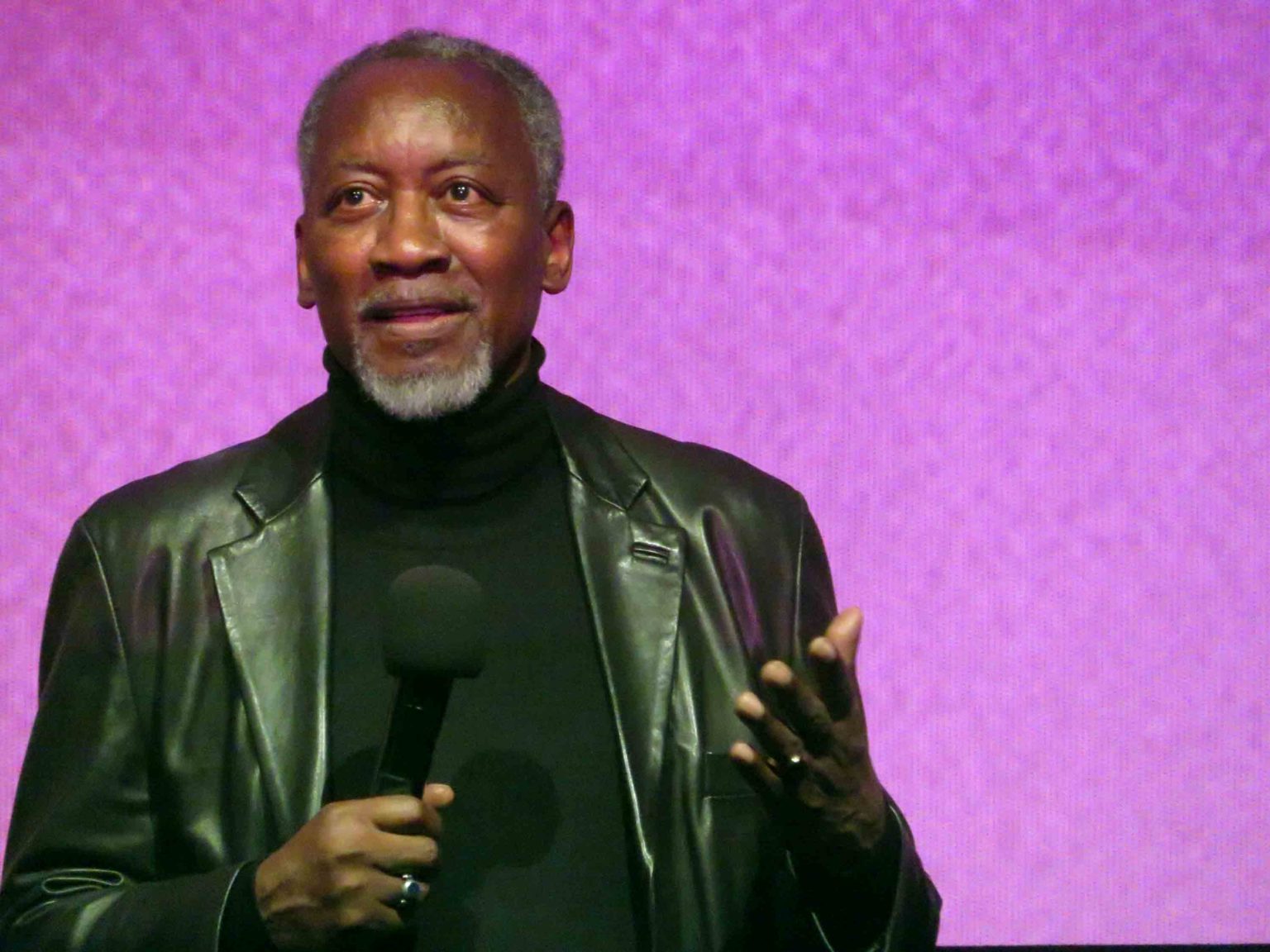 Joseph Mydell
Joseph Mydell
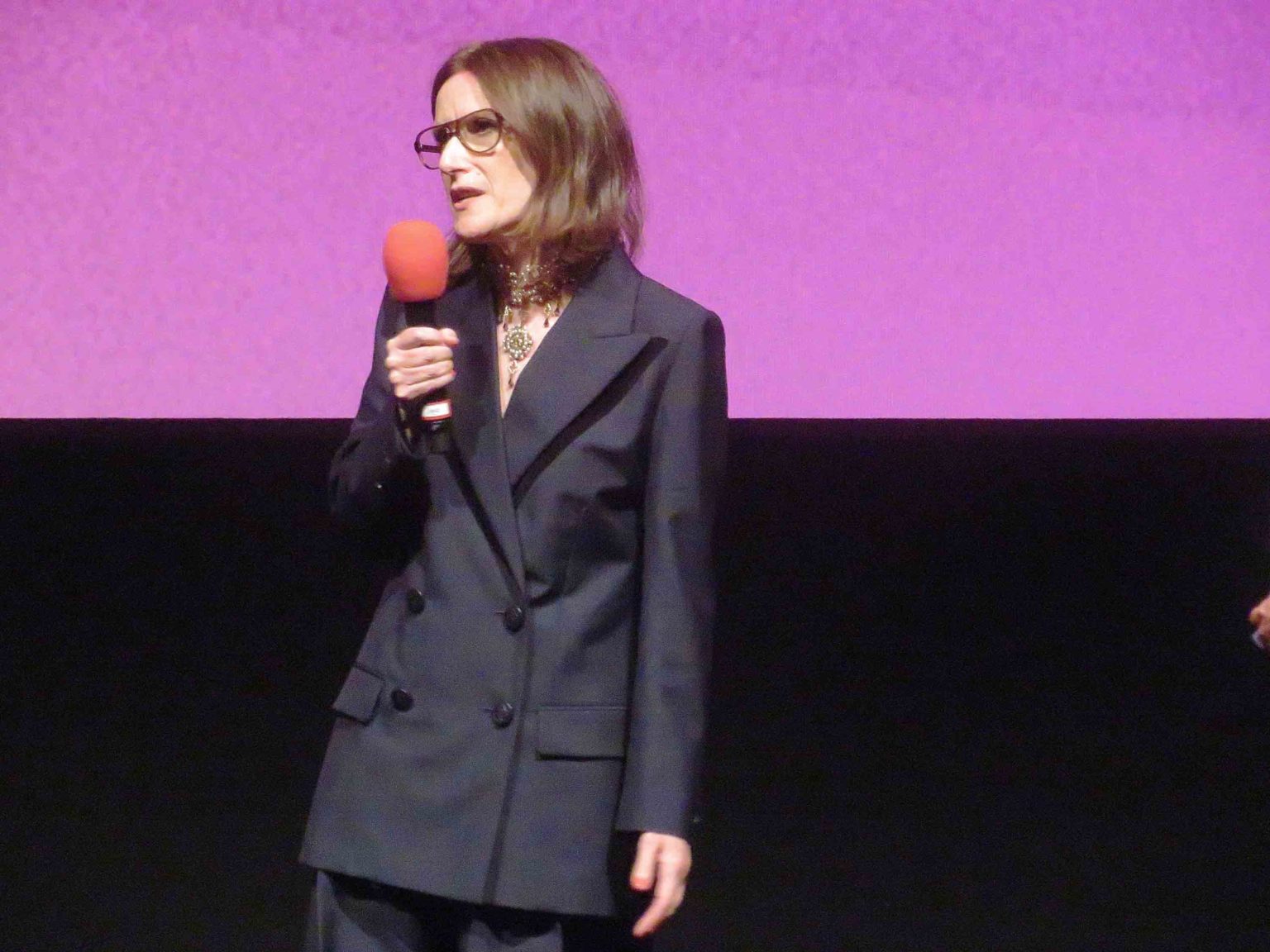 Joanna Hogg
Joanna Hogg
It’s an intricate work about memory and the fragile, fractured relationship between mothers and daughters.
There were times when I questioned the dual casting of Swinton; there was something off key about the tone of her performance as the mother. But of course I was wrong, Hogg is just using that awkward juxtaposition to make us question what we are seeing.
![]()
Day 3
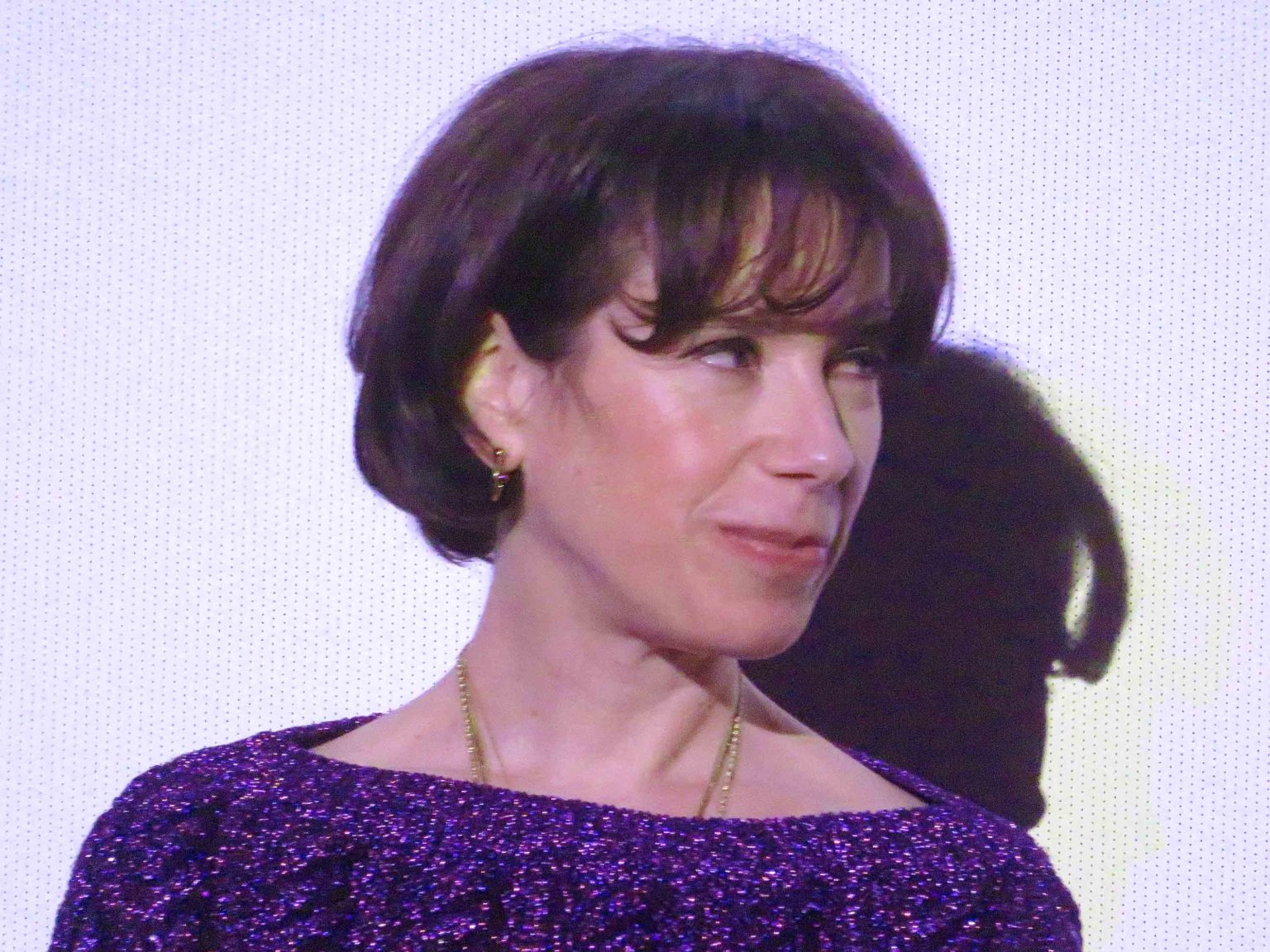 Sally Hawkins
Sally Hawkins
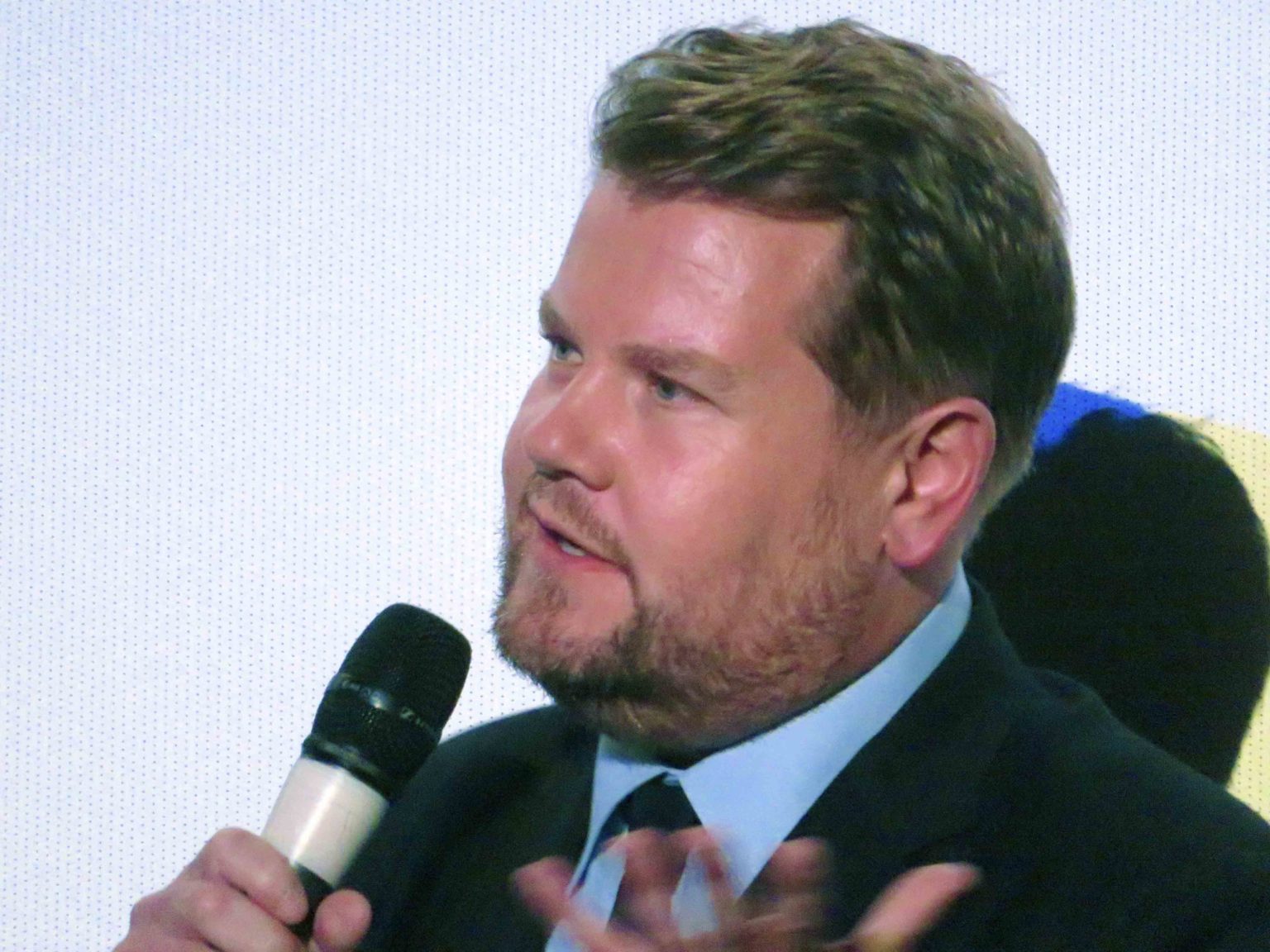 James Corden
James Corden
Mammals
For day three’s ‘film’ I chose the premiere screening of this new TV show for Amazon Prime. It’s fascinating how the streaming services have surpassed the big Hollywood studios in their output; it felt perfectly natural to watch these first three episodes as if they were three half-hour acts in a film.
I’d chosen it because it was written by Jez Butterworth. Best know for his play Jerusalem, he is one of theatre’s smartest writers and has crossed seamlessly into blockbuster movies, including the screenplays for Edge of Tomorrow, Black Mass, Spectre, and the forthcoming Indiana Jones 5.
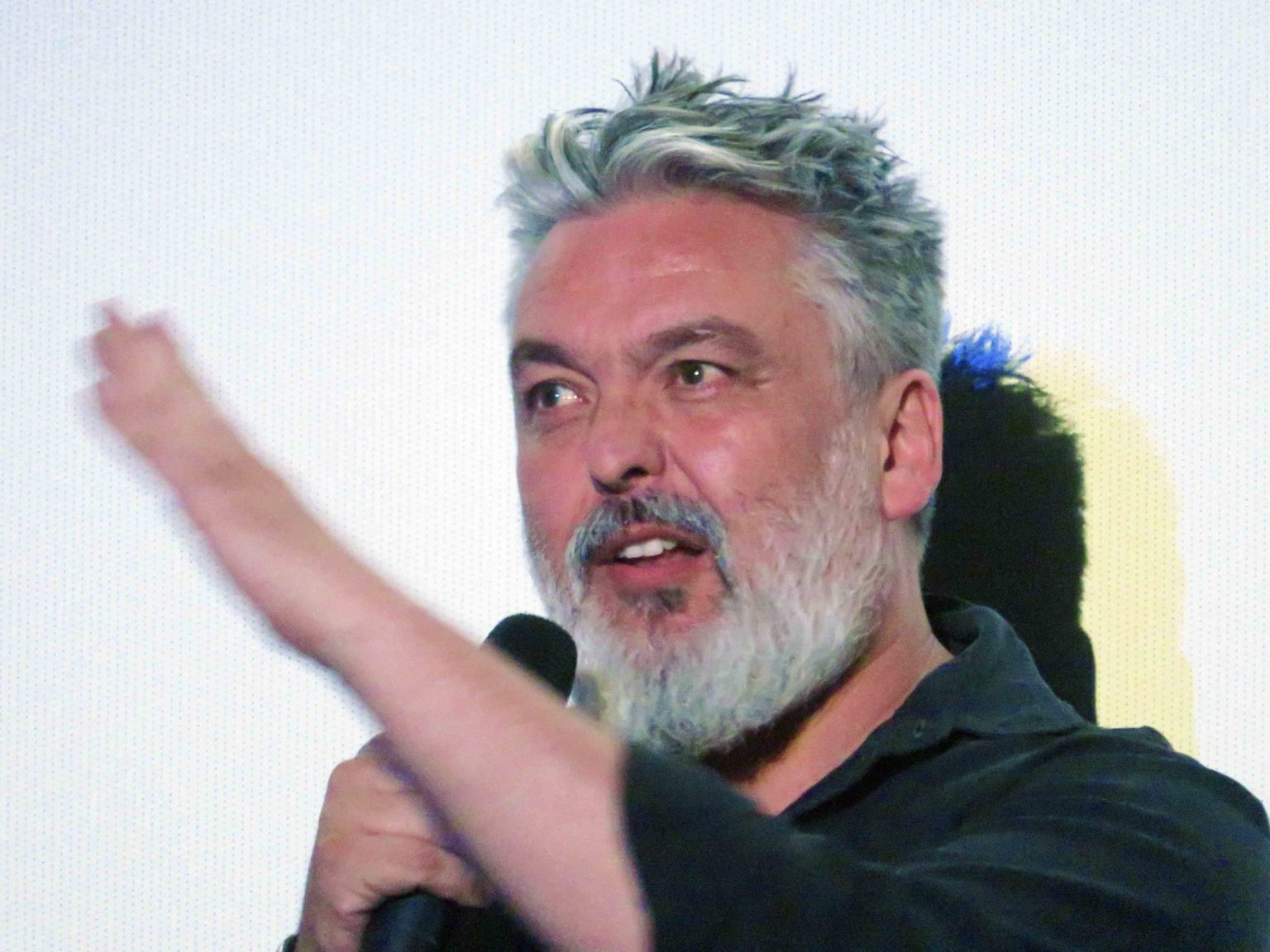 Jez Butterworth
Jez Butterworth
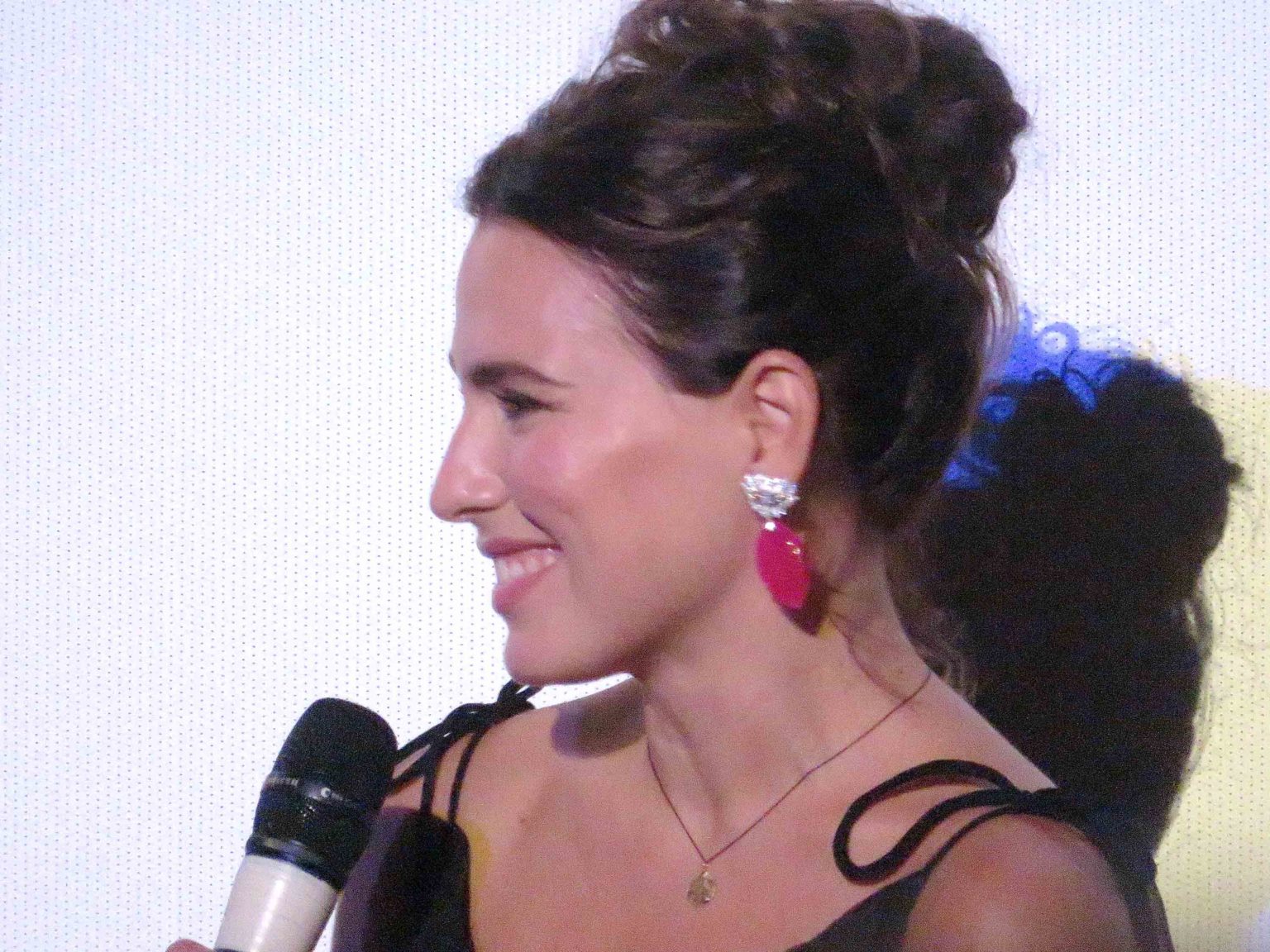 Melia Kreiling
Melia Kreiling
I really enjoyed Mammals.
James Corden is back to a straight acting role. He plays Jamie, a Michelin-star chef (why are they always Michelin-star chefs in dramas?). Jamie lives a perfect life with his perfect wife (played by Melia Kreiling).
We open on their race to an idyllic weekend away. It’s a very typical streaming-service, big budget scene. Lots of cameras, drones, crane shots taking us from inside a gorgeous holiday home and out into the cliffs. There’s even a blue whale swimming in the bay. Oh, and Tom Jones is in the cabin next door. You’ve got to admire the hutzpah of that opening.
And you have to admire the bravery and tonal shift of the scenes that follow.
Butterworth is having fun with metaphors and juxtaposition, setting up characters and weaving in exposition. And director Stephanie Laing is masterful at bringing all of that to the screen, and pacing the episodes to a perfect half-hour.
Of course the stand-out performance is from Sally Hawkins, playing Jamie’s eerily enigmatic sister Lue. She has an otherworldly connection to nature, doing things that feel totally disconnected to the drama of the plot. At one point she takes herself to the woods, in a wedding dress, and lies in a pool of water, floating like Millais’ Ophelia.
It was fascinating to see how uncomfortable she obviously was, being interviewed on stage afterwards (fumbling her words and quickly passing the mic to the self-assured Melia Kreiling).
I’m looking forward to seeing how this unusual story unfolds in episodes 4 – 9. And so too, apparently, is the legendary Mike Leigh who sat a couple of seats from me and Corden rushed over to say hello to at the end.
Day 4
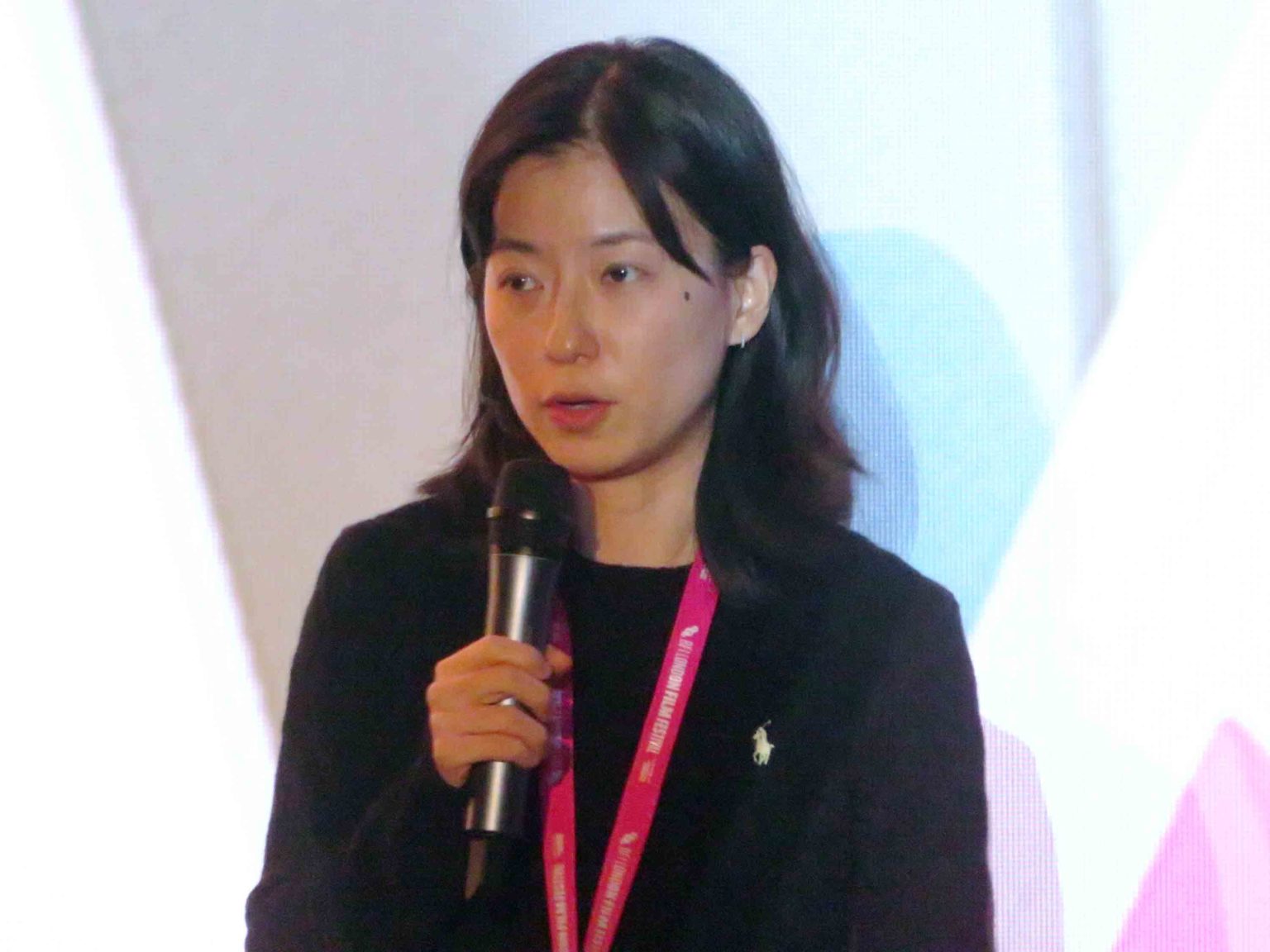 Director, Christine Ko
Director, Christine Ko
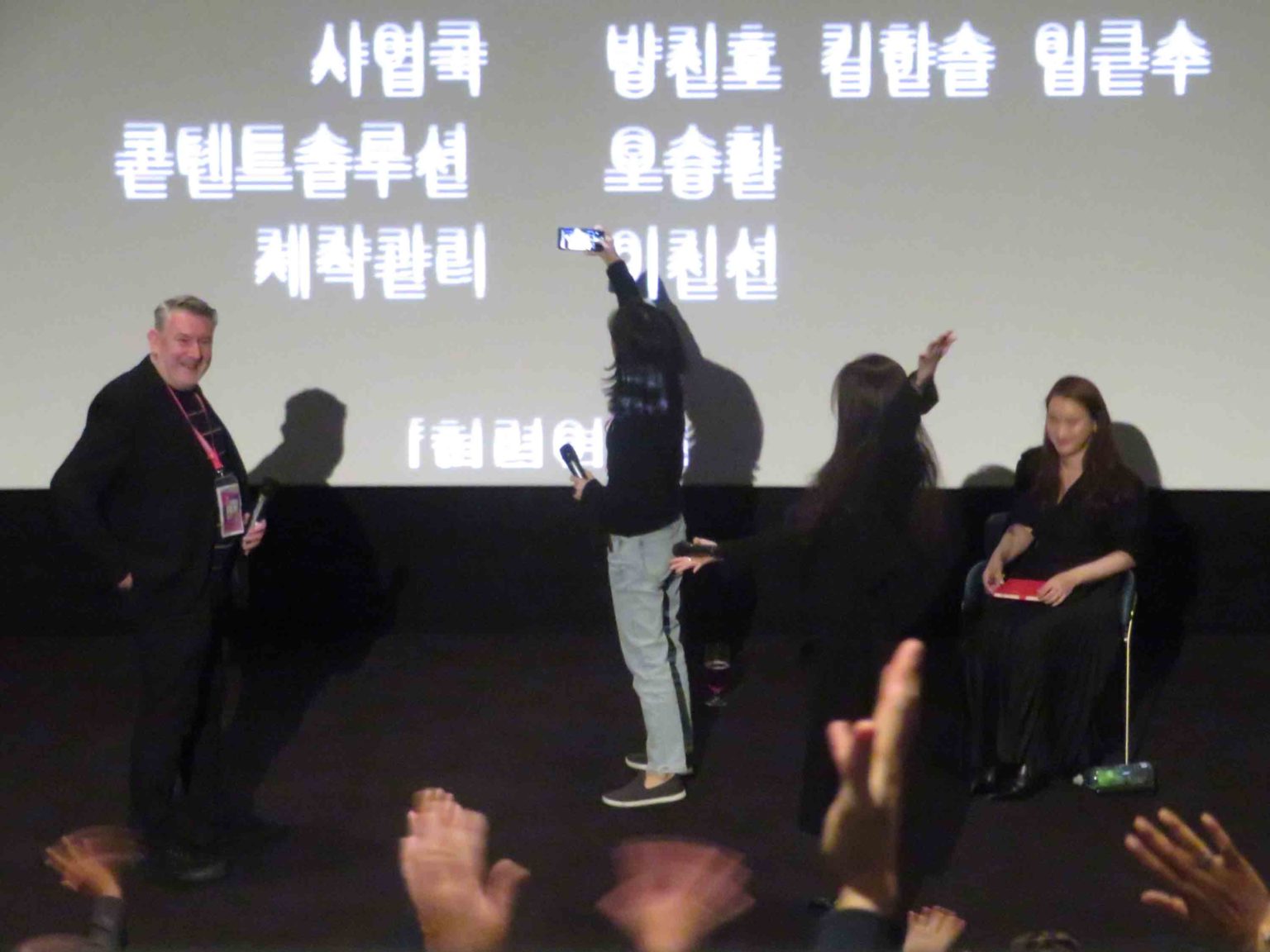 Christine Ko taking a 'traditional' selfie in front of the audience of the films third UK screening.
Christine Ko taking a 'traditional' selfie in front of the audience of the films third UK screening.
The Woman in the White Car
This South Korean debut film, from director Christine Ko, is a brilliant whodunit. It seems to be getting a lot of attention at the film festival (I saw it in a huge screen at Odeon Luxe West and there was a second screening starting 15 minutes later, next door). I’d guess that the buzz is around the casting of Parasite’s Lee Jung-eun as the archetypal cynical, small town beat-cop, stepping-up to her first big case (and revealing her own back-story along the way). She is brilliant, of course.
The blood-soaked snow of the opening scenes make it tricky not to make comparisons to Fargo. Director Christine Ko introduced the film, telling us this would be set in the snowy mountains, not the glass tower-blocks we are used to seeing in Korean films. Although the nuance of the potential folksiness of the characters gets a little lost in translation.
The constant pace and quick-cut style owes a lot to TV drama (and that’s no bad thing). There’s a quick set up, audio from a violent struggle played over visuals of a crime scene with the protagonists long gone. A woman steps bare-foot and bloodied from a car in front of a small, quiet hospital; she drags a blood soaked, limp body from the passenger seat and they fall to the floor – ‘my sister’ she cries, ‘help’. Inside, a lone worker is detached by headphones, she’s making a hot drink and then sees the scene through a glass door. She puts down her cup and rushes for the door. We focus on the precariously positioned cup as the door opens and shocks the cup into freefall, smashing to the floor. I was gripped.
Our lead character Do-kyung (played by Jung Ryeowon) is in shock, sitting in the hospital corridor, refusing treatment when officer Hyun-ju (Lee Jung-eun) begins to tease out the story of the tragedy. But it’s quickly clear that not is all as it seems.
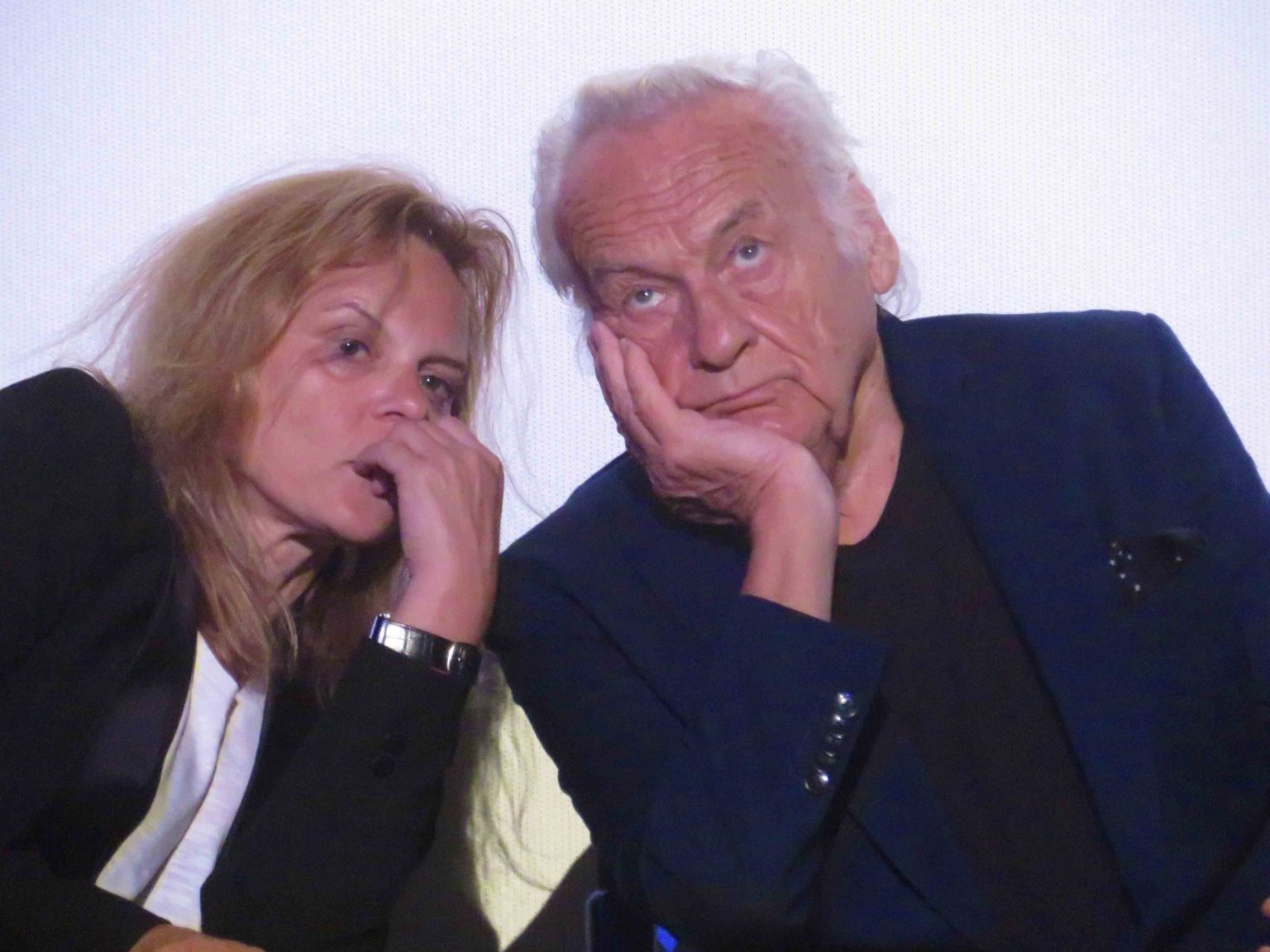 Ewa Piaskowska and Jerzy Skolimowski
Ewa Piaskowska and Jerzy Skolimowski
EO
EO (Io in Poland) is an outstanding piece of film-making from the Polish Director, Jerzy Skolimowski. It won this year’s Cannes Jury Prize and it was easy to see why.
Apparently it is inspired by Robert Bresson’s 1966 film Au Hasard Balthazar, although nobody mentioned that in the intro or post show Q&A.
The film follows the encounters of a circus donkey as he passes between various human ‘keepers’.
Through the melancholic, inscrutable eyes of EO the donkey, we get a glimpse of humanity in all its complexity – working through most of the mortal sins as we go. Yet EO is inscrutable, creeping (to pretentiously quote from Macbeth) ‘at this petty pace from day to day’.
Along the way we are treated to a master-class in cinematography and sound-design. If you can, I’d really encourage you to see it at a cinema with great sound. It’ll be released by BFI in early 2023 as part of a retrospective of Skolimowski’s work.
Through the post show interview it was clear that this was a project of love between Skolimowski and his life, writing and producing partner Ewa Piaskowska.
In answer to why he chose a donkey as his lead actor, Skolimowski told the story of visiting a living nativity in a provincial town. Mary and Joseph stood with baby Jesus, surrounded by a cacophony of animal life. Goats and sheep bleated, geese honked and chickens clucked and flew. And in the back, deep in the shadows, a donkey stood, stock-still, his huge unblinking eyes observing but never reacting to to the chaos of life.
Was that story true? Or had he just been inspired by Robert Bresson’s film about a donkey’s human encounters. Who knows and who cares? As Skolimowski says (and I’m paraphrasing) – I am so bored of linear narrative where I go and see a film and can tell the ending from the first few minutes of set-up.
Day 5
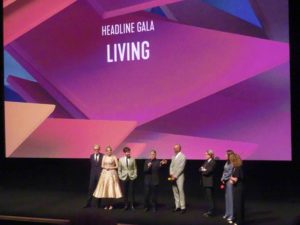
The cast with writer Kazuo Ishiguro and director, Oliver Hermanus with their producers Producers Stephen Woolley and Elizabeth Karlsen and the LFF Festival Director, Tricia Tuttle.
On day five I had the privilege of seeing Living which is an adaptation of the Akira Kurosawa film, Ikiru. Kazuo Ishiguro has transposed the action from Japan to London’s County Hall in 1952 (roughly the same time as the Japanese original).
You must always take these things with a pinch of salt but when Producers Stephen Woolley and Elizabeth Karlsen told us that the script had been written with Bill Nighy in mind, for the lead, that seemed so obvious. He was perfect in the role.
There were many parallels to Ishiguro’s Remains of the Day (a Merchant Ivory collaboration), another dissection of the accents and manners of the mid century shift in English social strata. In his introduction, Director Oliver Hermanus (who had not worked outside South Africa before this) looked every bit like he had picked up James Ivory’s directorial loud hailer, in a very sharp, light grey suit.
Everything about this film was just lovely.
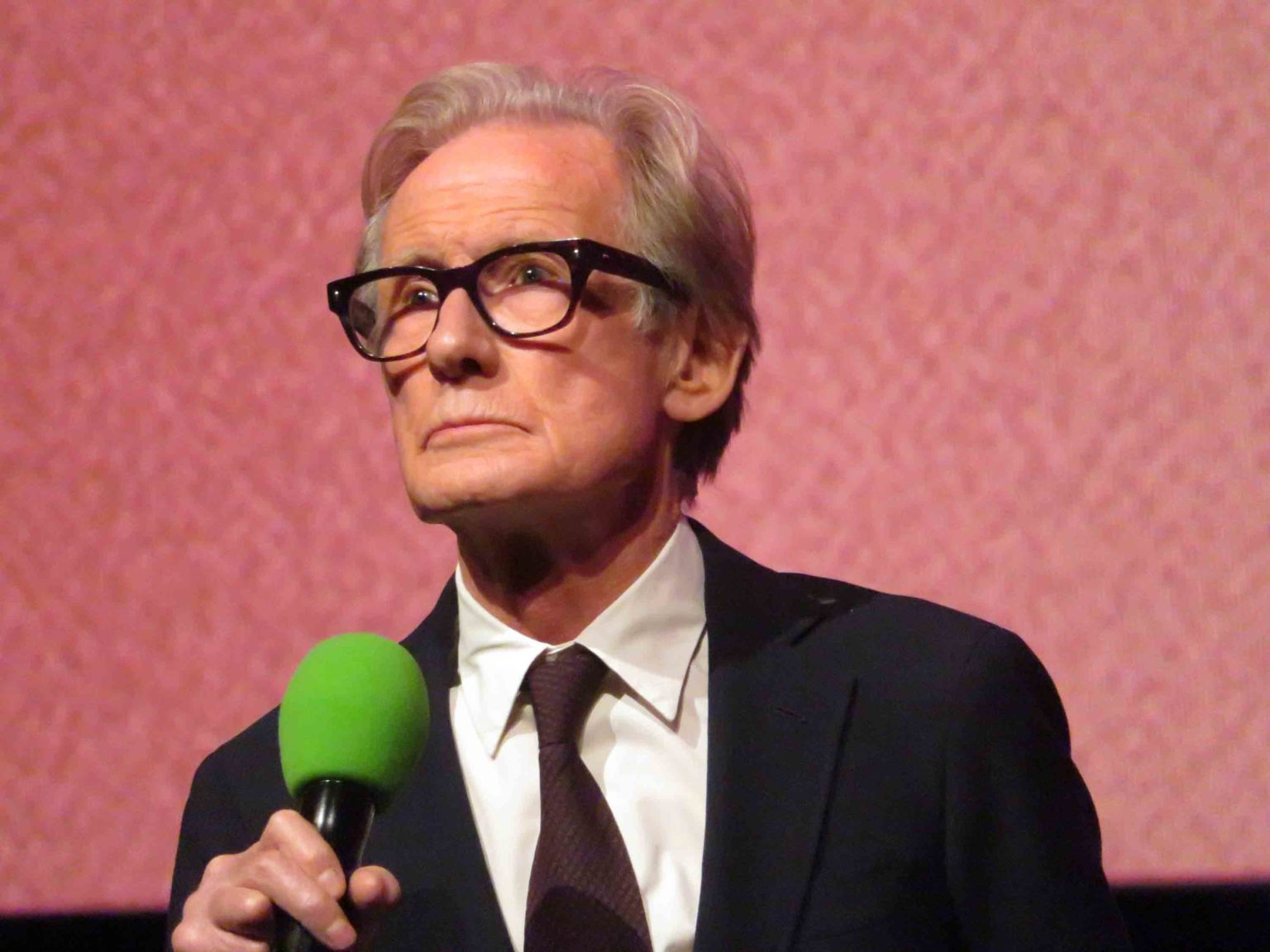 Bill Nighy
Bill Nighy
The Wonder
My next film was a screening of Chilean director Sebastián Lelio’s dive into 19th Century Ireland. It was at the relatively small screen at the ICA so there were no special guests (and no photos).
In post-famine Ireland, it’s said that everyone hates the English so it’s a surprise to see a no-nonsense, Crimean war nurse Lib Wright (Florence Pugh) summoned from England by boat, train, cart and on foot to a remote Irish village.
She’s been paid (along with an Irish nun) to observe, or maybe bear witness to a miracle or a blasphemy, a girl who does not eat and claims to survive on ‘manna from heaven’.
Florence Pugh is inescapably brilliant in the role of the defiant, scientific pragmatist, dealing with demons of her own. Tom Burke appeared for the second film in a row as a disheveled writer, this time a journalist out to debunk the myths.
But is was the Director and Niamh Algar’s performance that elevated the film beyond melodrama. The action opens on a film lot, we see the individual sets as Algar’s Kitty talks to us about the stories we weave and tie us together. The camera turns and moves onto the set and we’re amongst the passengers crossing the Irish sea; very quickly forgetting ourselves in the scene. It’s a lovely conceit that is picked up again to close the film.
Day 6

Cog’s Nick Kime, experiencing the end of the world, via a VR headset.
LFF Expanded
On day six I stepped aside from feature films and chose immersive experiences, via LFF’s Expanded programme at the Leek St tunnels, under Waterloo station.
There was a lot of ‘end of the world’ stuff plus some more joyous explorations of nature and dance.
My colleague, Anna has written a separate review of her experiences so I’ll leave you to read on via that journal entry.
Day 7
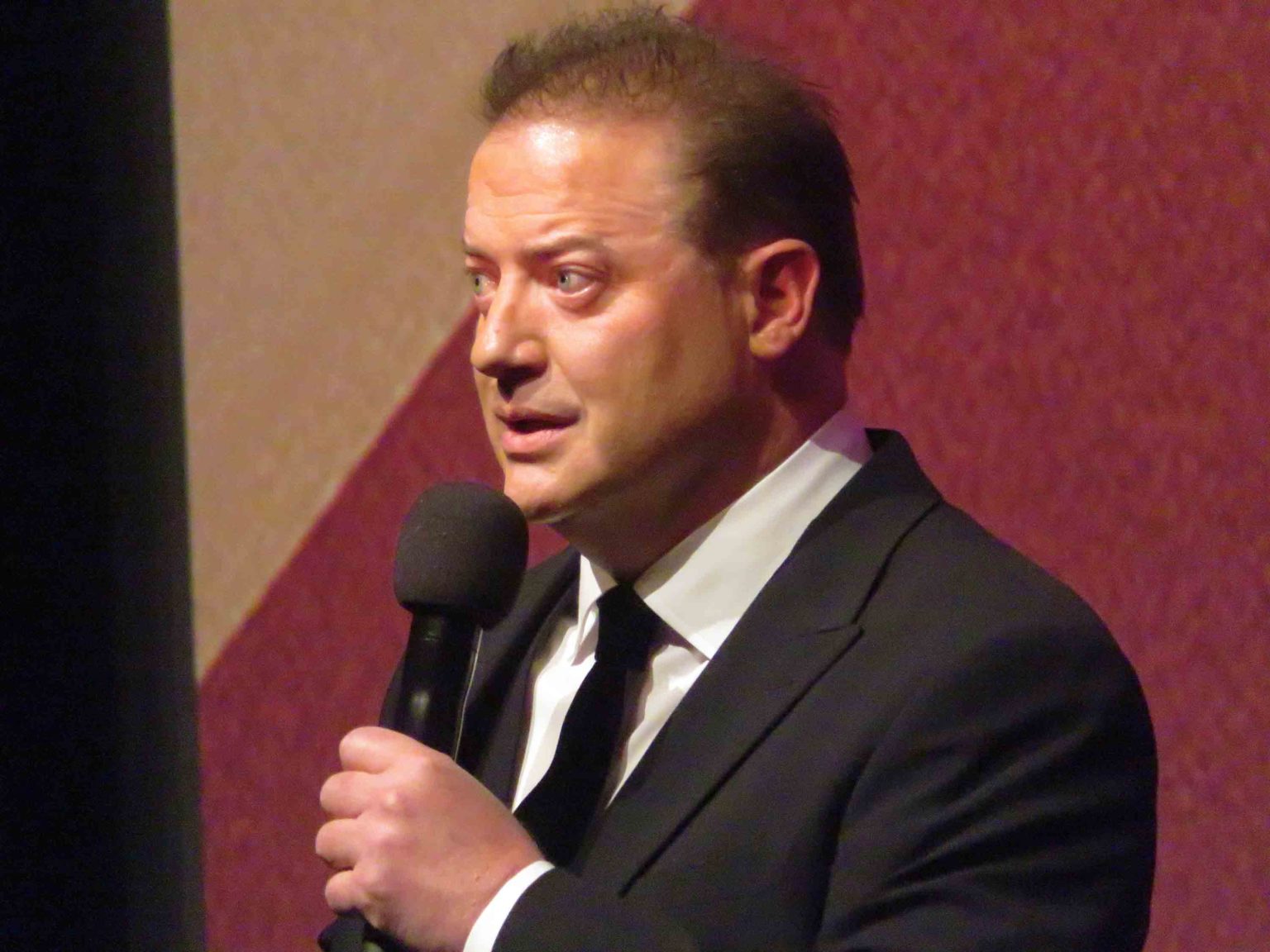 Brendan Fraser
Brendan Fraser
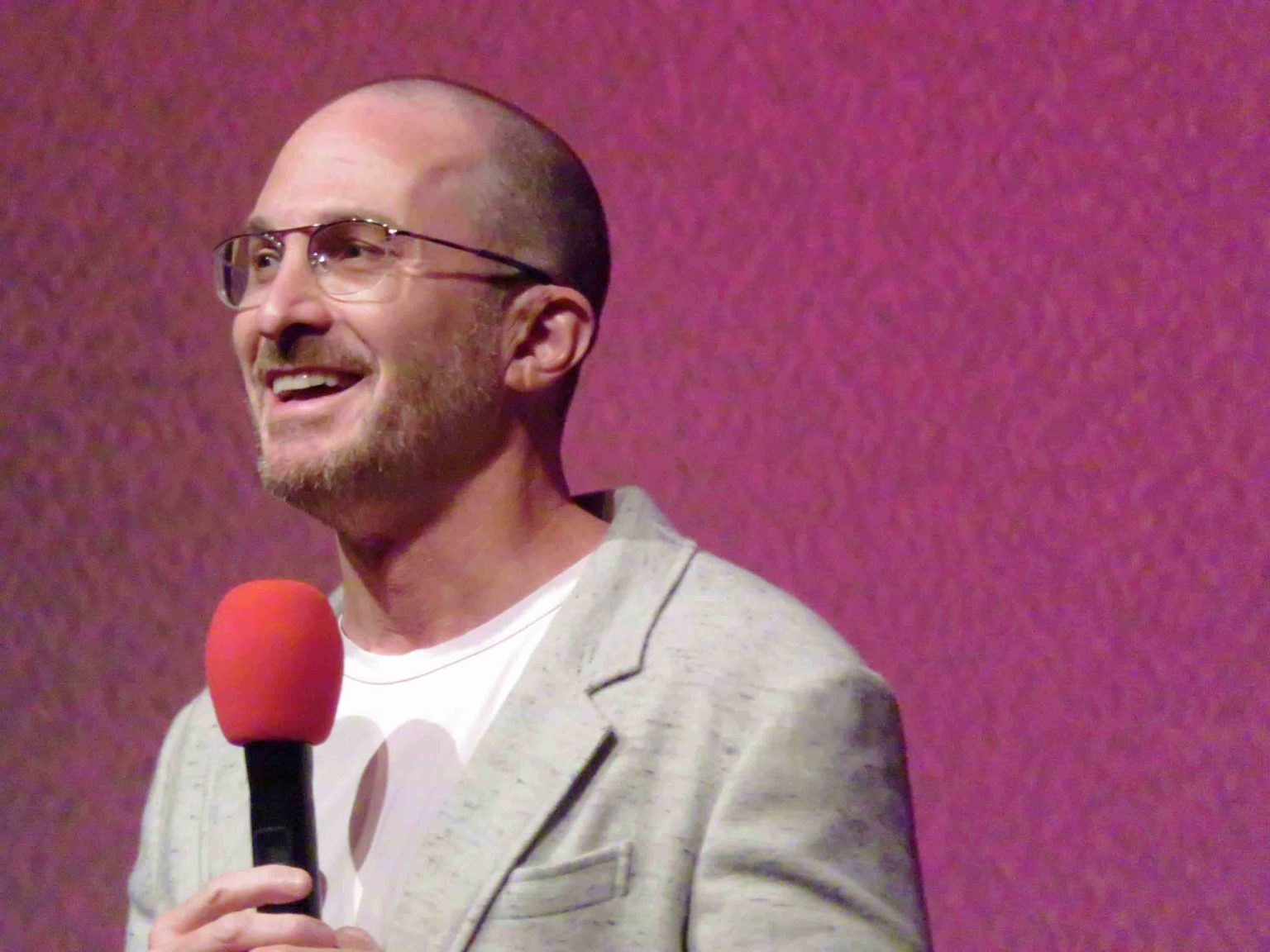 Darren Aronofsky
Darren Aronofsky
The Whale
I’ve been thinking a lot about The Whale since this screening.
It brought me to tears more than once.
It’s a film of Samuel D. Hunter’s play – set almost entirely in a single room. It’s a film about the causes and consequences of addiction. It is hugely uncomfortable and it’s undeniable that Brendan Fraser’s performance is incredible.
Actually all of the performances are great, especially Hong Chau who gives a very measured and nuanced performance as Liz the carer.
The writing is very sharp and it was lovely to see Hunter share the pre-screening spotlight with Fraser and Aronofsky. As Hunter explained, there’s a fair amount of autobiography in this tale of an English teacher and playwright.
I very much enjoyed and appreciated the craft and emotion of it all. I can’t imagine a better telling of this story.
Although a tiny bit of me had hoped for some more of the surrealist darkness of Aronofsky’s previous films such as Black Swan or Mother. This is much more restrained in its cinematic palette.
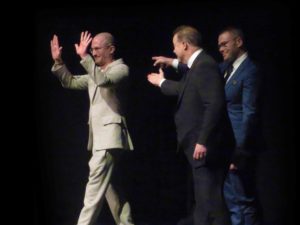
No, you’re the man – Director, Aronofsky receives the back-slapping of his lead actor and writer
As the film ended the Royal Festival Hall erupted in applause. Everyone was on their feet. Maybe part of the reason was because the creative trio had stayed to watch the film but I’ve been to many such screenings where the audience stay firmly seated.
The applause carried on for so long that the trio had to take to the stage again to take it in and calm it down. There was a lot of rightly deserved back-slapping amongst the trio.
Day 8
Day eight was a rest day for me. My family were still out seeing films but I went home and slept.
Day 9
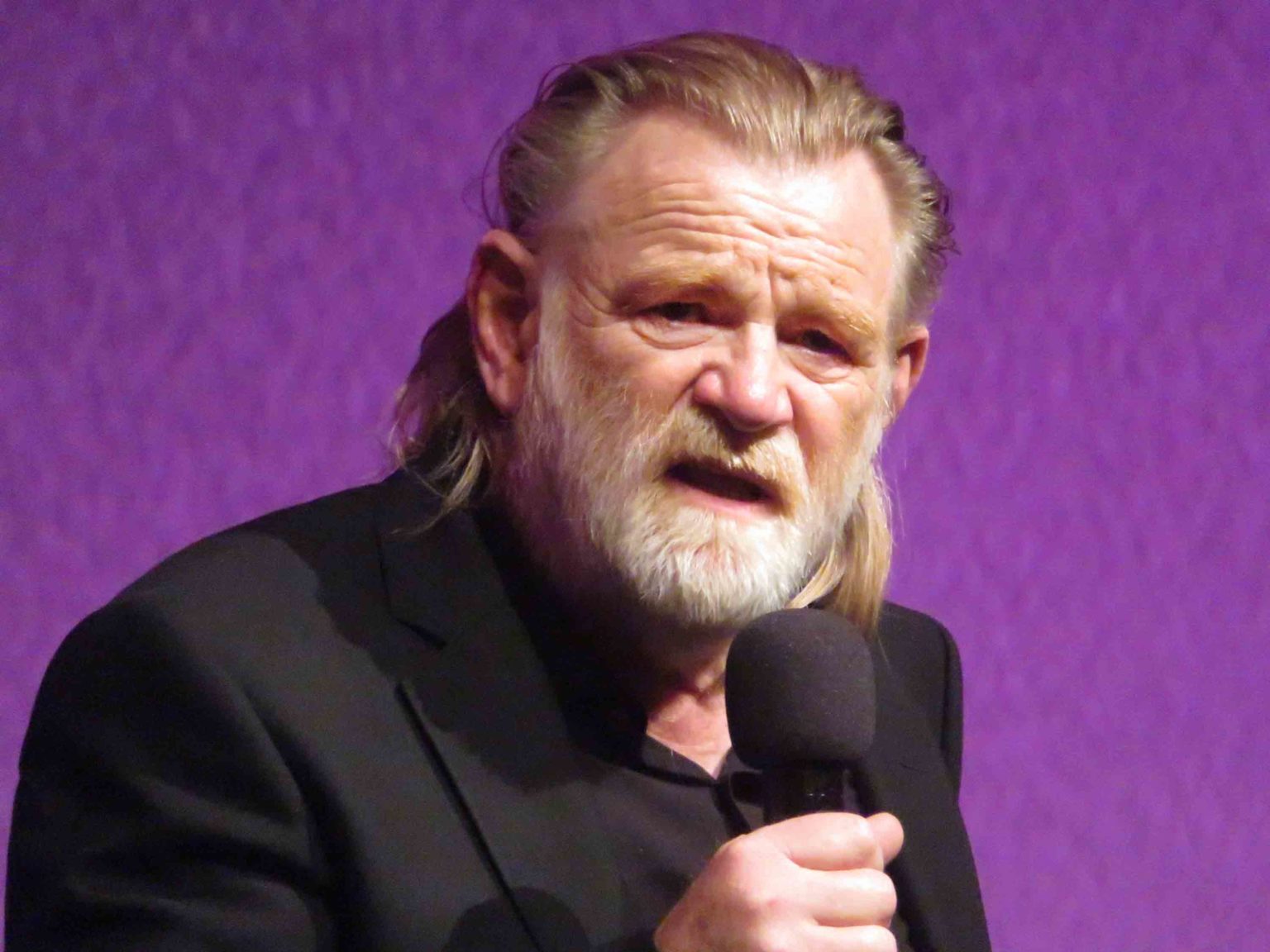 Brendan Gleeson
Brendan Gleeson
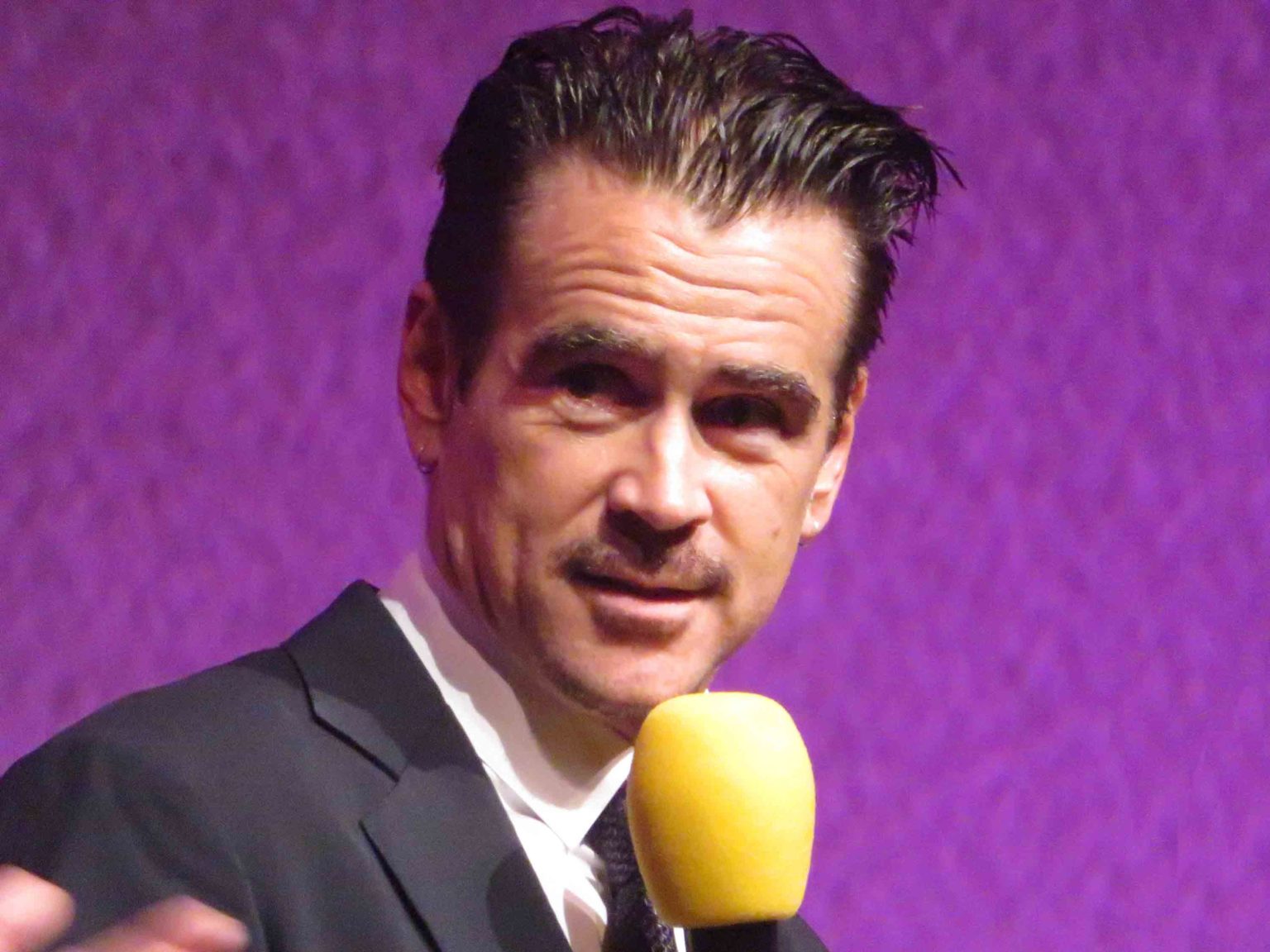 Colin Farrell
Colin Farrell
The Banshees of Inisherin
Martin McDonagh returns to the setting of West-coast Irish islands that made him a celebrity playwright. Except now he has the budgets and cinematography of an Academy Award winner.
The Banshees of Inisherin is perhaps the finale of his Aran Islands trilogy. Banshees of Inisheer, was the late ’90s unpublished work that McDonagh said “isn’t any good”, although he did say he wanted to return to it when he was older.
The film reunites Brendan Gleeson and Colin Farrell (previously together for McDonagh’s very sweary and violent In Bruges) who were like naughty schoolboys at the premiere.
Set against the literal backdrop (we see the cannon fire) of the Irish Civil War. Gleeson plays Colm Doherty, a folk musician who decides he needs to leave a legacy and no longer has time for the nonsense of his one-time drinking buddy, the nice but dull Pádraic Súilleabháin (Farrell).
In the tradition of McDonagh, this is a very funny, truly tragic story that reveals the underbelly of an isolated community that cannot run or hide. These are characters who have found convivial coping mechanisms to live together. But a depth of darkness is not far from the surface in any of them.
The whole cast is superb, working with wonderfully rounded characters. Kerry Condon plays Pádraic’s spinster sister Siobhán, and Barry Keoghan plays a boy with a learning disability and a tragic home life with his abusive policeman father.
This is not a film for the squeamish. I had to look away from the screen and I can still hear the dull, wet, folly thump that made me squirm in my seat.
It was quite an emotional rollercoaster and this was just the first two films. I hung around in the foyer of the Royal Festival Hall, eagerly anticipating the surprise film…
Surprise film…
Each year at the London Film Festival, they screen a surprise film. It’s a fun idea that generates a lot of interest and speculation. It really is a secret until the moment the credits start.
In the past, we (me and my family) have seen the wonderful Lady Bird, the perfectly fine (and somehow Best Picture Oscar winning) The Green Book, and the relentlessly depressing Uncut Gems.
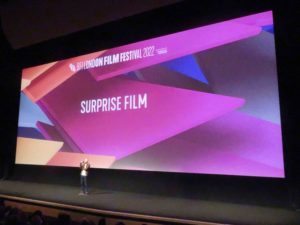
Michael Blyth, London Film Festival Programmer
Usually the festival director comes out to seek guesses from the audience. Maybe, as Tricia Tuttle is moving on, it was portentous that LFF programmer, Michael Blyth did the deed this year.
“Welcome to this special screening of… Don’t Worry Darling”.
There aren’t many places where that would get as big a laugh. Although Michael had to admit he quite liked the ill-received Olivia Wilde film with bad-boy Harry Styles.
The film started and many of those around me knew what it was based on the distributor’s logo. There was much excited whooping and actually quite a lot of people walking out. Even when the title, The Menu came up, I was none the wiser.
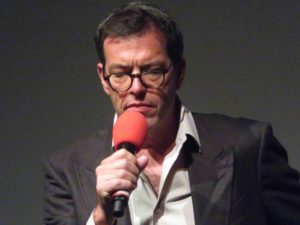
Mark Mylod
…The Menu
It’s a simple premise. Different members of the uber-rich, 1%ers embark to an exclusive island-restaurant for an invitation-only, once in a lifetime experience.
As the experience turns sour, they are trapped.
I’m not sure I can write much more without some big spoilers.
I can tell you that it’s beautifully, clinically directed by Mark Mylod. I can tell you that he told us he’s directed it in the style of the sociopathic Chef Slowik (played by Ralph Fiennes). Although it also felt a lot like an episode of Succession, which Mylod directs, and that’s no bad thing.
I can tell you that there is a lot of dark comedy and funny lines, including the hugely engaging and famously large-eyed Anya Taylor-Joy’s character, Margot saying that her eyes were bigger than her belly.
And I can tell you that I really enjoyed it.
Day 10
Inland
Inland felt a bit like a lucky lockdown project.
Set in Gloucester it is written, directed and produced by friends who I’d guess grew up in the creative community of the town.

Director Fridtjof Ryder with Producers and cast member
Rory Alexander plays a man leaving some kind of institution. We learn that his mother is missing and there are hints of tragedy. There are layered allusions to mother nature via the adjacent woodland and the film does have an underlying tone of menace and mysticism. But the story doesn’t really go anywhere.
Somehow the cast features Mark Rylance alongside Shaun Dingwall and Kathryn Hunter. And perhaps the fact that they were not at this premiere, and were barely mentioned in the post-screening interview is an indication that the producers and director were not expecting to get so lucky with their lockdown casting.

Goran Stolevski
You Won’t Be Alone
You Won’t Be Alone is a folk horror tale set in North Macedonia, the birth country of writer/director, Goran Stolevski. The film opens on a young peasant woman who turns to find a shape-shifting witch holding her baby. She makes a pact to give over the child to become the witch’s servant when she comes of age. The witch agrees but, as a parting gesture, takes the girl’s voice.
Trying to protect the child, the mother hides her away but of course, when the time comes, the pact has to be fulfilled. And the young woman, entirely naive due to her isolation, becomes a shape-shifter herself.
We watch as she moves from body to body, experiencing the range of human experience for the first time.
Like Inland before it, I had chosen to see this film because of the star-name actor. In this case Noomi Rapace (who features on the film posters) but she was an all too brief incarnation and was, of course, mute.
This was an interesting, art-house film with some interesting twists of the folk horror genre. I enjoyed it but am not sure what I’d have made of it if It’d stumbled across it on ‘Peacock’, the service that has been streaming it in the US since May.
Such is the way with the timings of independent film distribution that I got the feeling that Goran Stolevski has moved on from this, his first feature film, originally filmed in late 2020. He’d flown to the UK from his now home in Australia where his second feature, Of an Age recently won Best Film at CinefestOZ.
He was jet-lagged but obviously has affection for London Film Festival. He talked of being a student in Bristol, blagging a free pass to the festival and commuting each day on the Megabus where he would sleep and write. The script of this film was written on those journeys.
Day 11
Saturday was another day of rest for me. Well, not rest but not film festival films. I stayed in and waited for my family to return with news of their day of cinematic adventure.
Day 12
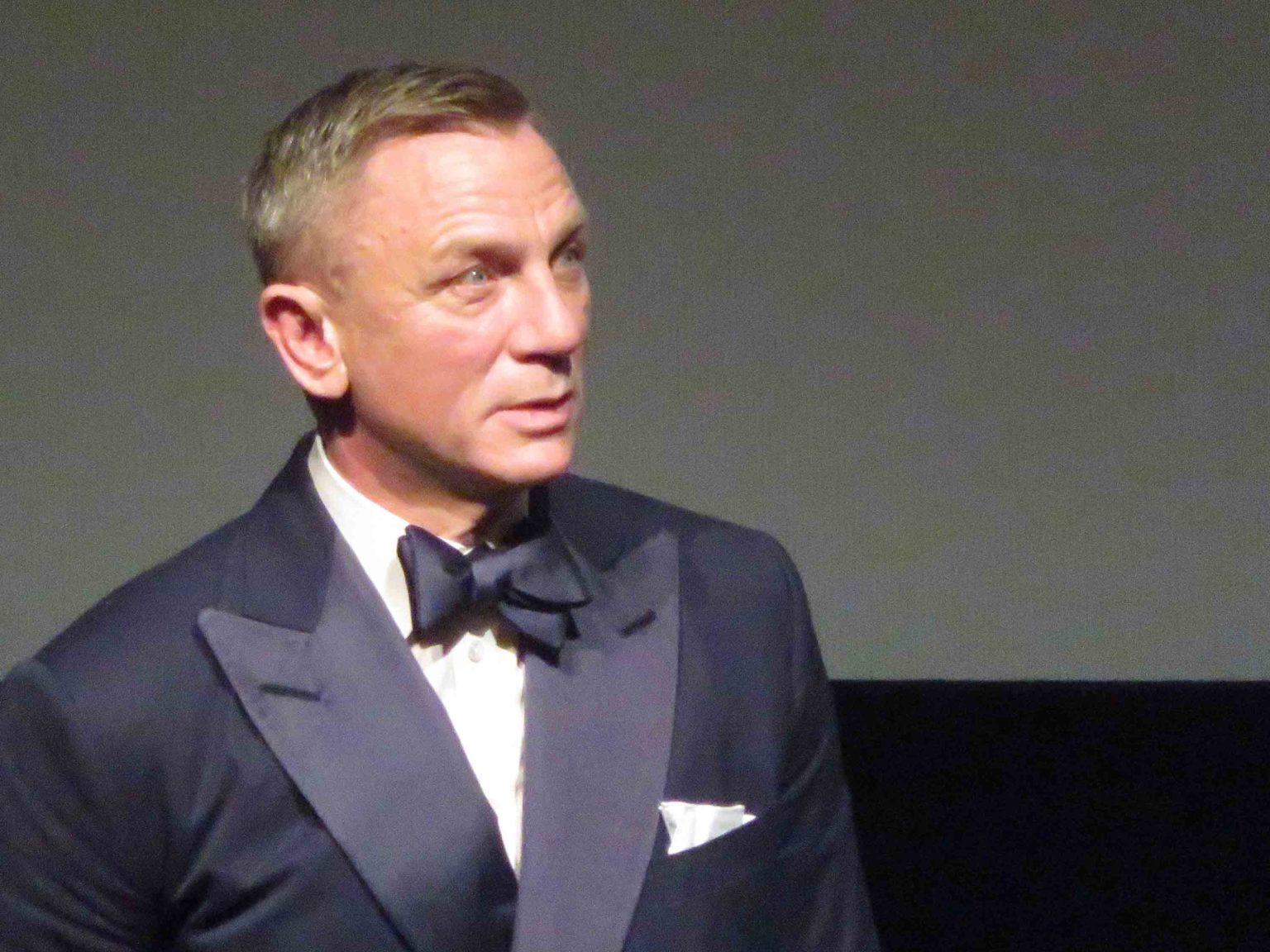 Daniel Craig
Daniel Craig
 Janelle Monáe
Janelle Monáe
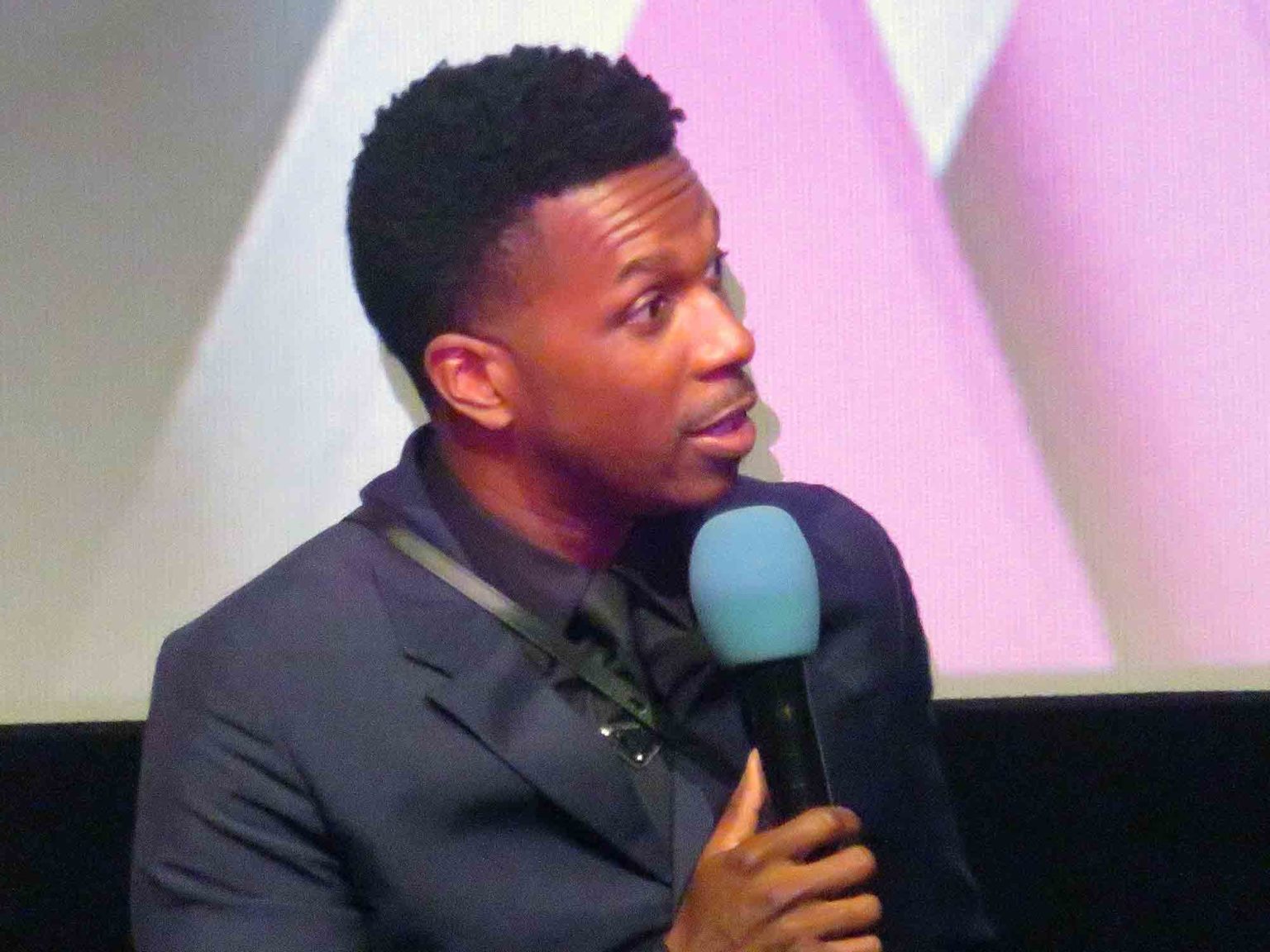 Leslie Odom Jr.
Leslie Odom Jr.
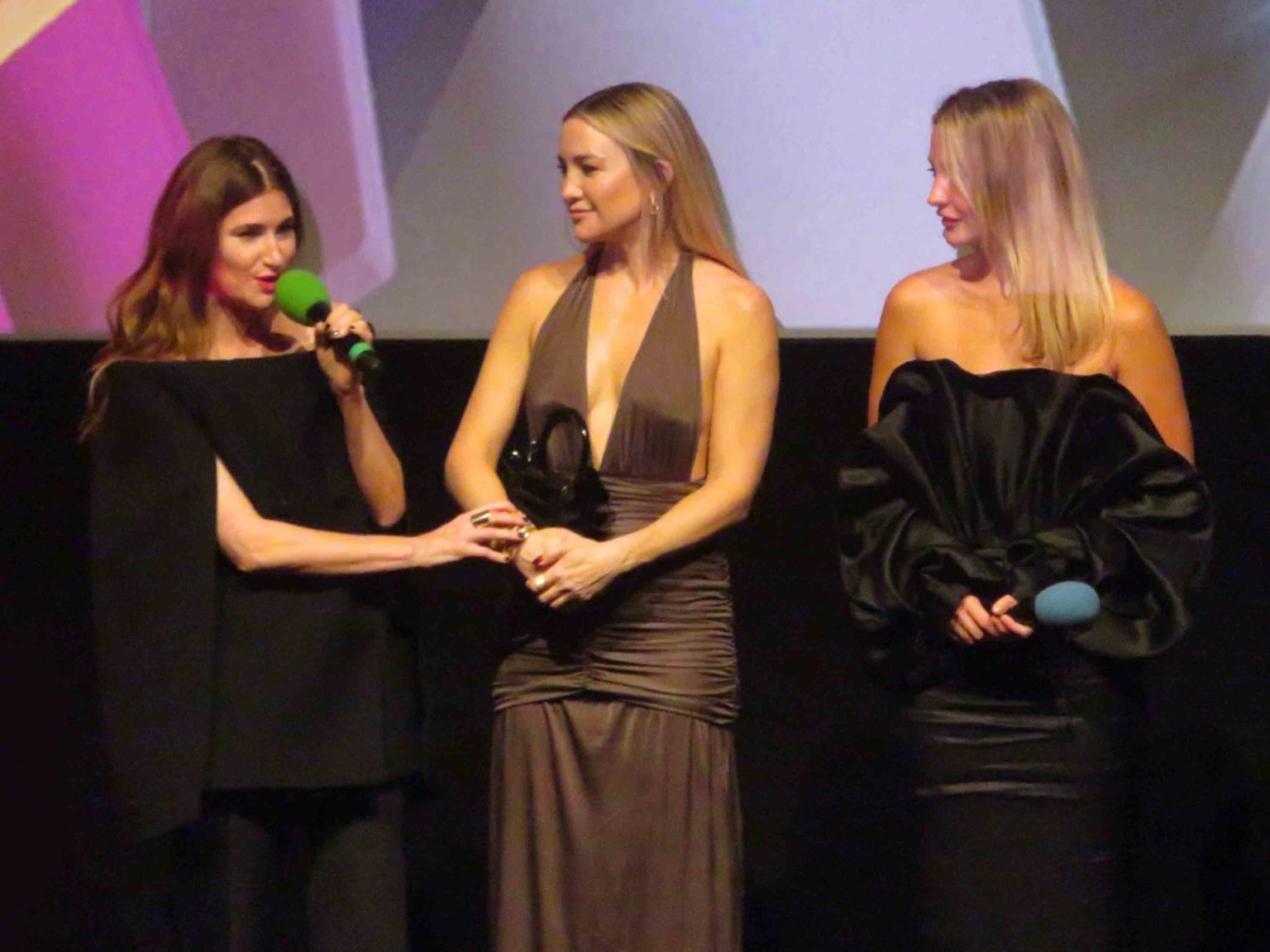 Kathryn Hahn, Kate Hudson and Madelyn Cline
Kathryn Hahn, Kate Hudson and Madelyn Cline
Glass Onion: A Knives Out Mystery
The Closing Gala is always lots of fun. It’s a big red carpet affair with lots of stars and guests. And being nearby to witness the unreality of all that can be compelling.
I sat in the stalls, with my youngest son and his partner, as celebrities as diverse as Gwendoline Christie and Grace Jones made a spectacle of taking their seats. Actually, they aren’t that diverse, maybe the guest list focused on very tall women.
Before and after the film, almost the entire cast took to the stage, answered questions and paid tribute to Angela Lansbury and Stephen Sondheim, both of whom had died since their brief cameos.
I’m sure I don’t need to précis the plot for anyone. It’s a big budget, tongue-in-cheek whodunit comedy with a cast of celebrities having a hoot under the direction of Rian Johnson.
I really enjoyed it but I suspect my opinion was swayed by sitting so close to the cast, who found it laugh out loud hilarious. When Detective Benoit Blanc (Daniel Craig) was slapped across the face, I could barely hear the dialogue for two minutes, over the laughter, whooping and clapping.
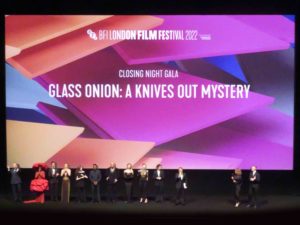
The almost full Glass Onion cast on stage with their director.
It was the perfect way to end the festival with a big, glamorous bang.
I can’t wait to see what 2023 has to offer, with the 67th BFI London Film Festival under a new Director.
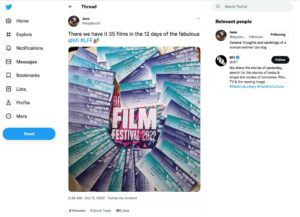
But I think I need to admit that I’m never going to have the stamina or dedication that my partner, Jane shows to the festival.
